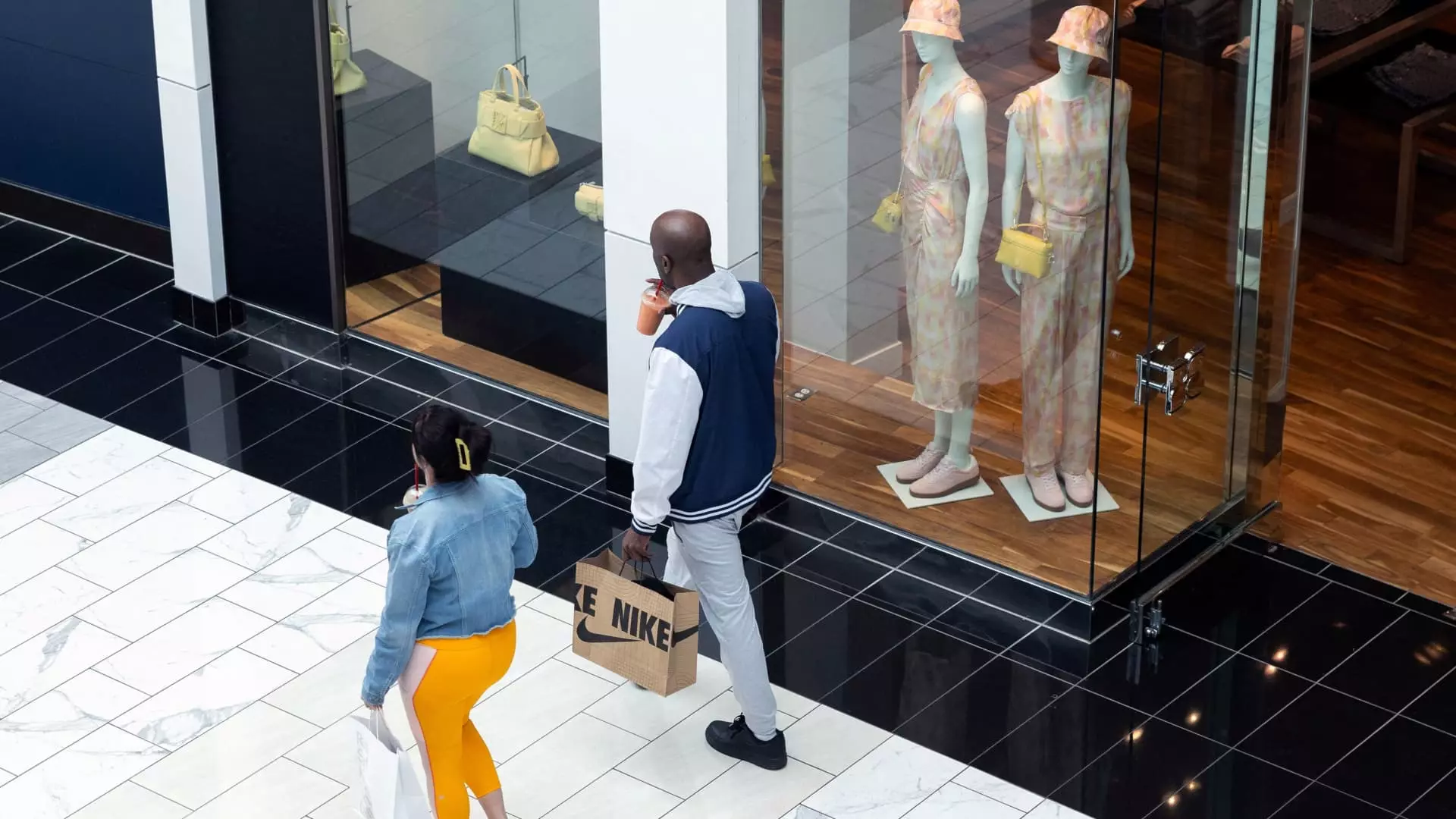As the U.S. teeters on the brink of economic uncertainty, a troubling statistic emerges: 73% of Americans report heightened financial stress. This troubling sentiment emerges amidst an astonishing paradox: consumer spending continues to hold firm, despite the looming specter of a recession. While many would expect an economy riddled with anxiety to showcase reduced spending patterns, Americans have seemingly opted for panic buying—a reaction tied closely to impending tariff wars. This oddity raises critical questions about consumer psychology and the underlying trends in our economic framework.
Recent data reveals that consumer spending not only remained resilient but even surpassed expectations in early months of the year. This resilience is spurred by panic-induced purchasing as consumers rush to buy goods before tariffs raise prices even higher. According to recent findings by J.P. Morgan, the odds of a recession have surged to 60% by year’s end, dramatically increasing from 40%—a sign that should alarm policymakers and consumers alike.
The Backbone of Our Economy
Consumer spending is often referred to as the backbone of the U.S. economy, responsible for a large portion of Gross Domestic Product (GDP) and a significant driver of economic development. Federal Reserve Chair Jerome Powell recently pointed out this very fact, emphasizing that the future trajectory of the economy heavily leans on consumer sentiment and willingness to spend. However, factors such as tariffs and inflation are beginning to weigh heavily on those sentiments, introducing an uncertain horizon for retail and economic growth.
Under President Trump’s trade policies, tariffs have transformed from an abstract concept into a tangible burden on consumers. Despite the administration’s attempts to negotiate lower tariffs, the fallout from these policies has ignited fears of rising prices. The Conference Board has reported a significant dip in the consumer expectations index, showcasing the public’s concern moving forward. This dip indicates a critical risk factor that could precede an economic downturn—highlighting how deeply intertwined consumer sentiment is with trade policies.
Behavioral Economics and Inertia
While traditional economic theories suggest that financial constraints will naturally lead consumers to curtail spending, the reality is often more complex. Behavioral economics illustrates the notion of inertia and the preference for consistency in consumer behavior. As noted by experts, even when facing heightened financial stress, individuals may cling to their usual spending habits—frequenting the same restaurants, purchasing the same goods, and generally resisting the changes that economic conditions warrant.
Sasha Indarte, a finance professor at the University of Pennsylvania’s Wharton School, addresses this behavioral inertia, remarking that consumer habits evolve slowly, even amidst declining financial conditions. The idea of “sameness” dominates decision-making, holding consumers in a familiar cycle that can delay necessary adjustments. However, this resistance to change may lead to disastrous consequences when household budgets inevitably tighten, forcing families to reevaluate their expenses starkly.
The Illusion of Resilience
It is crucial to question the underlying confidence driving current consumer spending: is it genuine or simply an illusion bolstered by inertia? Current consumer behaviors could represent a precarious balancing act, a façade of economic stability that could crumble when financial pressures reach a breaking point. Analysts warn that once consumers can no longer sustain their previous lifestyles, the shift in spending will reverberate through the economy—brands will respond to shrinking sales by trimming their workforces, launching a downward spiral few can escape.
Quadruple warnings from notable economists and analysts paint a scary yet realistic picture—we should brace ourselves for the impending fallout. A recent assessment discussed concerns that if household budgets were strained further, the resulting economic shock could have implications that ripple through every sector. Rising inflation and potential job cuts present an outlet for economic decline that could lead to broader financial instability.
Embracing Change Amidst Crisis
As consumers face these mounting pressures, a collective realization may soon emerge. Adaptation is crucial; resisting change in spending habits merely leads to greater stress in the long run. The good news is that awareness of financial pressures can serve as a catalyst for individuals to reassess their priorities and spending habits. Many will need to shift their purchasing behaviors to align with the evolving economic landscape.
In this context, accountability and foresight will be critical. Economic resilience should not rest solely on consumer spending; it should hinge on intelligent prioritization and adaptability. Collective engagement with the changing economy may present opportunities for sustainable growth, ultimately fostering a mindset that encourages smart spending and prudent financial planning. Even as we face economic uncertainty, the potential for necessary change lies in each individual recognizing the need to adapt—not out of panic but out of prudence.

